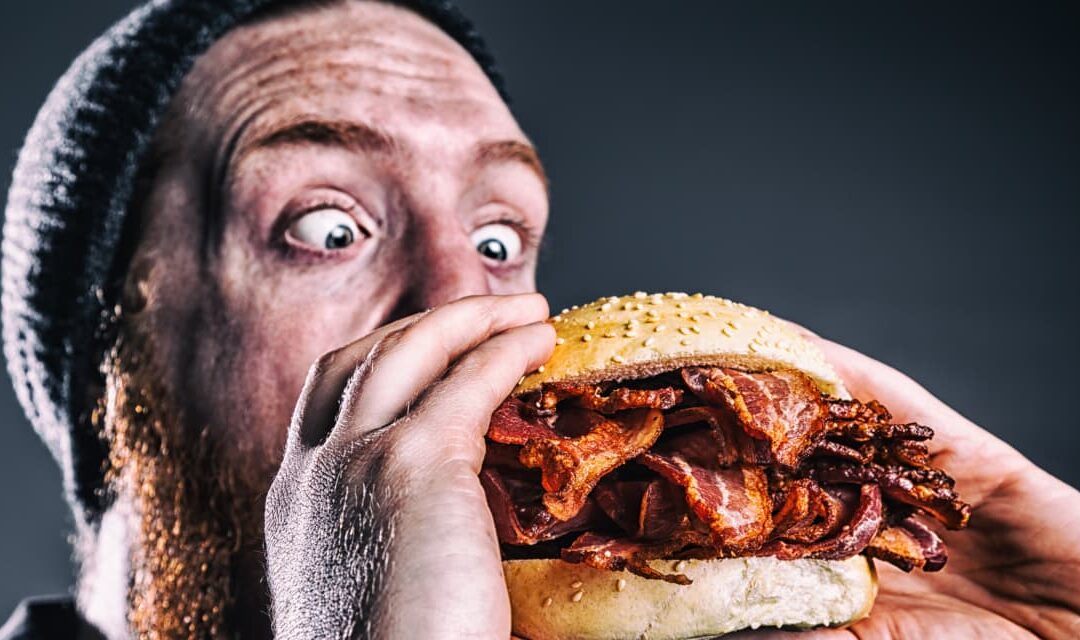Remember the bacon boom from years ago, when the porky favorite started finding its way into everything from burgers to ice cream?
It turns out the boom has never gone bust.
Consider how fast-food chains continue to roll out one menu item after another that incorporates bacon. This week, Burger King
QSR,
introduced its Candied Bacon Whopper, which not only features the namesake item as a burger topping, but also includes bacon jam.
Meanwhile, Wendy’s
WEN,
the chain that gained a measure of fame for its Baconator burger with six strips of bacon, has just started offering a breakfast burrito with six strips as well. And don’t forget the Pretzel Baconator and the Son of Baconator burgers or even the Baconator fries, among the chain’s other bacon-rich items.
There’s also the bacon that Americans devour at home, which equated to nearly $5.9 billion in sales in 2023, according to market researcher Circana. And while that figure represents a 7.8% decline from 2022 — Circana Executive Vice President Chris DuBois said the high price of eggs likely prompted some consumers to cut back on their breakfast bacon — it’s still considerably higher than the roughly $5 billion in sales in 2018.
Either way, DuBois said it’s clear the great American love affair with bacon isn’t about to end anytime soon.
“It’s gone from being a trend to a big staple,” he told MarketWatch.
Wendy’s has introduced a breakfast burrito that comes with six strips of bacon.
Wendy’s
Indeed, that helps explain why Tyson Foods
TSN,
one of the world’s leading meat processors, just opened its third U.S. plant dedicated to all things bacon. The new $355 million facility, located in Bowling Green, Ky., has the capacity to produce more than 100 million pounds of products annually. In other words, a lot of bacon.
Thomas Wenrich, a product development leader for Tyson, said it’s really no secret why bacon maintains its hold on the American palate.
“It’s delicious,” he said in a nutshell.
Well, there’s a little more to it than that. Culinary pros say bacon, a fatty, cured meat product, offers the right combination of that ever-appealing salty, smoky taste and ever-appealing crispy texture when it’s fried up. Plus, it’s so flavorful that a little bacon goes a long way — something that restaurants, including fast-food chains, very much keep in mind from a cost perspective.
Put simply, the pros say even just a couple of strips of bacon can transform a dish taste-wise.
“‘It’s gone from being a trend to a big staple.’”
Of course, while bacon is enjoying a boom that started at least two decades ago, according to food-industry experts, it’s almost always been a part of our diets, notwithstanding those who don’t eat it for religious reasons. The Ancient Romans had a version of bacon called petaso. And the classic American breakfast combo of bacon and eggs has been around for about a century itself.
By many accounts, the bacon boom began when fast-food chains started putting bacon on burgers and redefining its place beyond the breakfast table (and the occasional BLT sandwich). It wasn’t long before creative folks started having a field day — the British chef Heston Blumenthal is widely credited with bringing bacon ice cream to the fore about a quarter-century ago — and we also started seeing things like “bacon of the month” clubs.
The experimentation continues to this day. Candied bacon has become increasingly popular of late — hence, the new Burger King Whopper. Chefs and creative cooks will also incorporate bacon into just about anything and everything, from cinnamon rolls to sushi.
But what about the fact bacon isn’t all that healthy — and Americans are seemingly forever obsessed with the amount of fat and salt in their diets? While you’re not going to find medical professionals generally giving a big thumbs-up to bacon, an occasional bit of bacon isn’t going to kill you, some argue. Or as the WebMD site says: “You’re fine if you move bacon from the star of the meal to guilty pleasure status.”
Plus, the appeal of bacon is such that we’re not likely to give up on it anytime soon no matter what — and the boom will keep, well, booming. Or so says Chris DuBois of Circana, who observes that while some Americans may claim they want to limit their bacon consumption, the reality speaks otherwise.
“What people say and what people do are two very different things” when it comes to bacon, he said.









